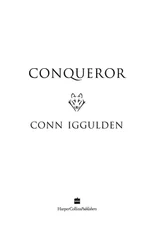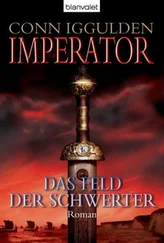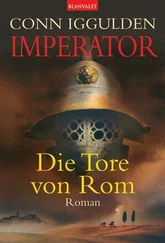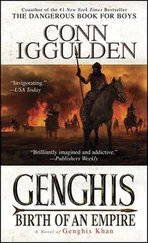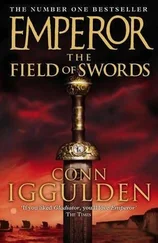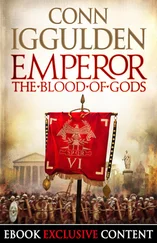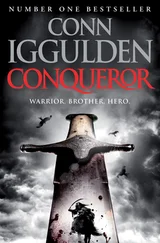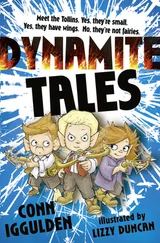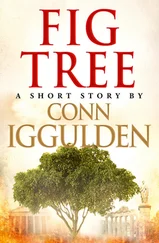Conn Iggulden - Empire of Silver
Здесь есть возможность читать онлайн «Conn Iggulden - Empire of Silver» — ознакомительный отрывок электронной книги совершенно бесплатно, а после прочтения отрывка купить полную версию. В некоторых случаях можно слушать аудио, скачать через торрент в формате fb2 и присутствует краткое содержание. Жанр: Фэнтези, на английском языке. Описание произведения, (предисловие) а так же отзывы посетителей доступны на портале библиотеки ЛибКат.
- Название:Empire of Silver
- Автор:
- Жанр:
- Год:неизвестен
- ISBN:нет данных
- Рейтинг книги:5 / 5. Голосов: 1
-
Избранное:Добавить в избранное
- Отзывы:
-
Ваша оценка:
- 100
- 1
- 2
- 3
- 4
- 5
Empire of Silver: краткое содержание, описание и аннотация
Предлагаем к чтению аннотацию, описание, краткое содержание или предисловие (зависит от того, что написал сам автор книги «Empire of Silver»). Если вы не нашли необходимую информацию о книге — напишите в комментариях, мы постараемся отыскать её.
Empire of Silver — читать онлайн ознакомительный отрывок
Ниже представлен текст книги, разбитый по страницам. Система сохранения места последней прочитанной страницы, позволяет с удобством читать онлайн бесплатно книгу «Empire of Silver», без необходимости каждый раз заново искать на чём Вы остановились. Поставьте закладку, и сможете в любой момент перейти на страницу, на которой закончили чтение.
Интервал:
Закладка:
'I am sorry, your majesty. I had hoped to bring you joy, not sadness.'
'Be assured, you have done both today. Now, unless you wish to discuss my written requests, I will return to my rooms.'
The administrator bowed his head. 'I cannot grant your desire to see your soldiers, Son of Heaven. Such things are far beyond my small powers.'
Xuan rose from his seat. 'Very well, but when the new khan comes, they will be needed, strong and fit. You will need every man then, I think.'
It was Sung Kim's turn to smile. The city of Hangzhou was ancient and powerful. It lay far from the border with the old Chin lands. The idea of an army ever coming close enough to cause concern was amusing.
HISTORICAL NOTE
The third son of Genghis was great khan for just twelve years, from AD 1229 to 1241. At a time when the Mongols were sweeping west into Europe, Ogedai's death would be one of the crucial turning points of history. Western Europe could not have stood against them. The medieval castles there were no more daunting than walled Chin cities, and in the field, the Mongol style of fast-striking tactical warfare would have been practically unstoppable. It is no exaggeration to say the future of the West changed when Ogedai's heart failed.
We know Ogedai was still young and died only fourteen years after his father. We do not know why he built Karakorum – the son of a khan who not only despised cities, but who had spent his entire life demonstrating how weak a defence they actually were. Yet Ogedai built a city as the throne of empire. Contemporary descriptions of it do survive – for example the words of a Christian friar, William of Rubruk. The silver tree was historical fact, as was it having shamanist temples, Islamic mosques and at least one Nestorian Christian church.
It is hard to explain why Ogedai would build such a thing at all. One explanation that fits the facts is that he was a little like Cecil Rhodes, a man whose heart pain began as young as sixteen. Before a heart attack finally killed Rhodes at forty-eight, he had built an empire for himself in Africa: a man driven to leave a mark, always knowing that he had little time to do it. Ogedai may well have had the same sense of urgency.
The second question is why he might build a city so influenced by those of the Chin – cities he had often seen burn. There, the influence of Yao Shu can be seen. Though Yao Shu was a real adviser to Ogedai, the character I have rendered is in fact an amalgam of two Chinese Buddhists from the period. I have not yet finished his tale. Worried by the khan's heavy drinking, Yao Shu showed Ogedai how wine corroded an iron bottle. It is also true that Ogedai agreed to halve the number of wine cups he drank each day, only to have cups made that were twice the size. Buddhist advisers brought a sense of Chinese civilisation to the Mongol court, subtly influencing each of the khans. As a result, cities would one day open their gates to Kublai as they never would have to his grandfather. The Three Games of Men (Naadam) in Mongolia are wrestling, archery and horse racing. The Naadam festival is indeed much older than the time of Genghis, though in previous centuries it was also a chance for tribes to horse-trade, mix bloodlines, gamble and be told the future in divinations. The modern Naadam festival has women taking part in archery and the races, though not wrestling, which is still the men's sole preserve. The description of the archery wall is accurate. Shots are taken from around a hundred paces and archers compete in groups of ten, the smallest unit of Genghis' army. Each archer has four arrows, and rather than judge individual shots, they must hit a certain number of targets to succeed. It is interesting that the archery tradition is one of teams, bearing in mind the martial nature of the sport and the vital role it played in the armies of Genghis Khan.
The horse races of the festival, which take place over three days, are all endurance races. In comparison to the West, endurance was the quality that made the khan's armies mobile and again it is interesting to see how that has remained the pre-eminent quality of equine greatness, rather than a burst of speed from a horse bred and built like a greyhound.
I have taken a small liberty with history in including a foot race. There's no record of it, but it would have been a possibility. I have no doubt other events have come and gone before the current form, just as the modern Olympics used to include a tug-of-war competition from 1900 to 1920, won twice by Britain. It is sometimes believed that Genghis left a will. If such a document ever existed, it has not survived. If it was an oral will, we do not know if it was given at the point of death, or long before. Some versions of history have Genghis dying almost instantly, while others have him lingering for days after a fall or a wound, where he could easily have arranged his own legacy. Either way, it is generally accepted that it was Genghis Khan's desire to have Chagatai inherit a vast khanate, while Tolui received the Mongol homeland. As the official heir, Ogedai inherited the northern Chin territories and whatever else he could win for himself. I have put that distribution in Ogedai's hands, in part because it would have been his final choice, no matter what his father intended. If Ogedai had executed Chagatai then, the bloodlines of that part of the world would have been very different, down to the present day.
Instead, Chagatai Khan died just a few months after Ogedai in 1242. The exact manner of his death is unknown, though the incredibly fortuitous timing allowed me to write and indeed suspect that he was killed. The earliest written formula for gunpowder is Chinese, from around 1044. It was certainly used in siege warfare during the period of Ogedai's khanate. Hand-held cannon of the sort I have described have been found dating back to Kublai Khan's period. One of the earliest recorded uses was by the Mongols in the Middle East in 1260, but they certainly went back further than that.
They were the cutting edge of military technology for the period, effectively a hugely powerful hand weapon that fired stones or even a metal ball. Iron vessels filled with gunpowder and lit with a fuse would have made effective shrapnel grenades. We do know the Mongols encountered them first against the Chin and Sung – and were quick to adopt such terrifying weapons. In fact, it was the vast territory covered by Mongol armies that led to the proliferation of such weapons across the land mass.
That said, the formula for Chinese gunpowder was poor in saltpetre, so lacked some of the explosive punch we associate with the material. A rush of flame would have been more common, with batches of the mixture varying enormously between makers, regions and periods. The extraordinary incident that led to the death of Tolui is from The Secret History of the Mongols. On his only campaign in northern China, Ogedai fell ill and 'lost [the use of] mouth and tongue' – a massive stroke, or perhaps grand mal epilepsy.
Mongol shamans and soothsayers made divinations, assuming that the spirits of the Chin were attacking the khan. They asked to be shown the correct sacrifice and, in response, Ogedai spasmed and suffered violent cramps. Using that response, they asked if a kinsman was needed. Ogedai then came round and drank water, asking to be told what had happened.
Prince Tolui did not have to be asked. The man who was father to Kublai and Mongke, both of whom would be khans, willingly gave his life to save his brother.
On the subject of slaughtering horses, I took the opportunity to speak to slaughtermen who had killed many hundreds of elderly horses over the years. In the preparation of kosher or halal meat, the animal needs to remain alive for the heart to pump out the blood. They begin by cutting the throat. The man I spoke to wanted a much faster kill, so he preferred an initial thrust to the heart, then drew the blade across the throat. Between 6 and 10 per cent of a horse's bodyweight will be blood. It's a rough estimate, but in a Mongolian pony, that would be around forty pints of blood.
Читать дальшеИнтервал:
Закладка:
Похожие книги на «Empire of Silver»
Представляем Вашему вниманию похожие книги на «Empire of Silver» списком для выбора. Мы отобрали схожую по названию и смыслу литературу в надежде предоставить читателям больше вариантов отыскать новые, интересные, ещё непрочитанные произведения.
Обсуждение, отзывы о книге «Empire of Silver» и просто собственные мнения читателей. Оставьте ваши комментарии, напишите, что Вы думаете о произведении, его смысле или главных героях. Укажите что конкретно понравилось, а что нет, и почему Вы так считаете.

